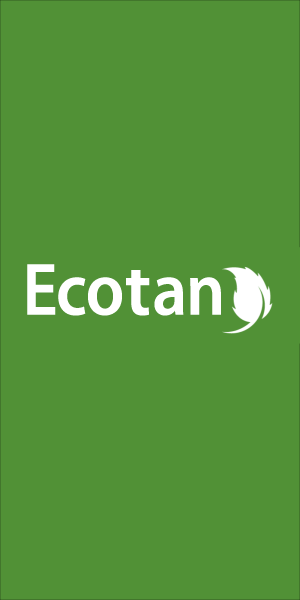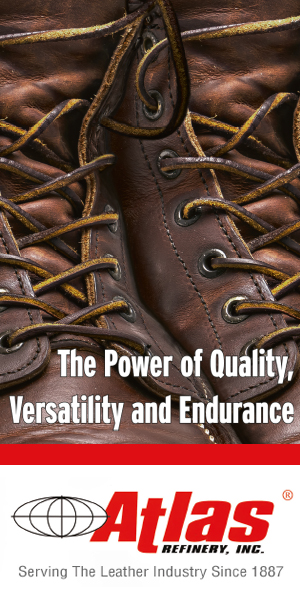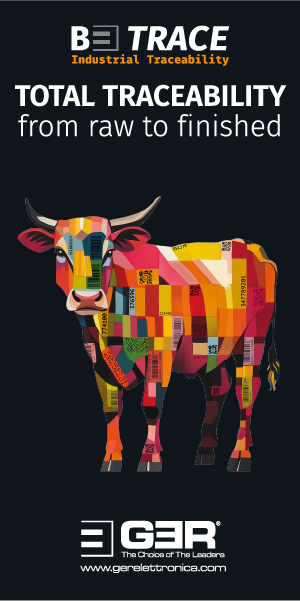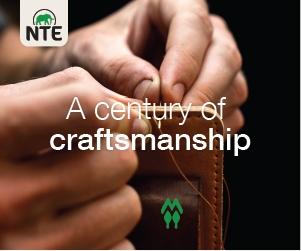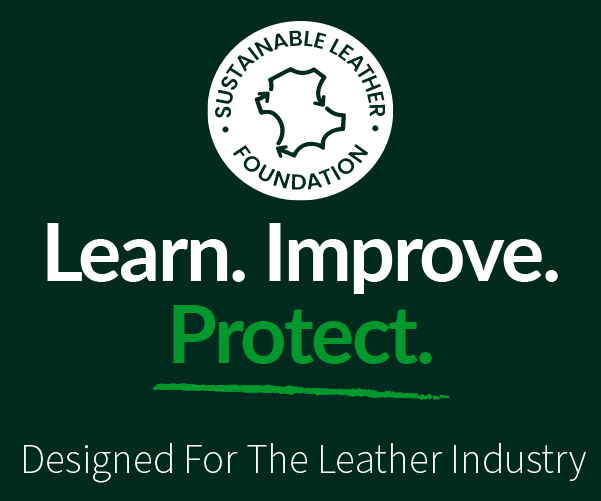White Nile Tannery, Khartoum, Sudan

After making a name for himself in footwear production in other parts of Africa, Lebanese entrepreneur Dr Mohamad Rifai received an invitation to open a business in Sudan too. There was plenty of local leather to work with, but he was dissatisfied with the quality and decided to set up the White Nile tannery in Khartoum and make his own.
Aserial entrepreneur originally from Lebanon, Dr Mohamad Rifai, spent years setting up businesses in many parts of Africa, including Mali, Ivory Coast, the Republic of the Congo and Ethiopia, before steering a path into the leather industry, choosing Sudan as the place to establish a tannery, White Nile. Other activities of his business group, Saria International, are as diverse as construction and the running of a shopping mall and theme park in Mali, but footwear, too, has been a mainstay and shoe and boot manufacturing was the group’s original activity when it arrived in Sudan in 2010. “I met people from Sudan who asked me to come and set up a footwear manufacturing operation here,” Dr Rifai explains. “They were serious people and I liked the idea because I knew Sudan had important raw material resources. So I carried out a feasibility study and decided to go ahead.Dr Rifai’s activity outside his country of origin began, he says, because he wanted his children to grow up in a more peaceful environment than that of the conflict-torn Lebanon of the latter part of the twentieth century. “I thought it better to look outside,” he says simply. His son, Nour Rifai, explains that it’s far from unusual for Lebanese business figures to operate in a range of countries and explains that with 16 million people overseas and only five million at home, the Lebanese diaspora is, proportionally, one of the largest in the world. In the case of the White Nile tannery, he refers to his father as not just the founder and president of the company, but its soul too. “My father is an old-school investor,” he says. “He is able to develop enough understanding of an industry to be able to judge quickly whether or not to invest. And that’s what he did with leather.” Even so, Nour Rifai is the tanning operation’s managing director and is, in his mid-20s, becoming more and more instrumental in its running.
Raw materials
It’s true that the African country has a large cattle, sheep and goat population. United Nations calculations in the years leading up to the secession of South Sudan in 2011 suggested herd sizes of around 42 million head of cattle and of more than 52 million head of sheep (bovine hides and sheepskins are the two types of raw material White Nile sources). White Nile’s own assessment is that the post-secession the livestock herd is 105 million head, with daily slaughter of 70,000 sheep and up to 25,000 head of cattle. However, soon after the start of its footwear operations in Sudan, White Nile realised that the local leather it was sourcing for its shoes and boots was not of the quality it needed and expected. “I’m afraid it wasn’t fit for purpose,” Nour Rifai explains. “The hides and skins often had considerable damage and the leather tended to be hand-finished using ways of working that are more or less obsolete. We started importing finished leather from Ethiopia, and even that wasn’t so suitable; we had an aim from the outset to produce footwear in Sudan for export markets, but we could not get the quality of leather we needed to be able to achieve that.”
There was an existing tannery next to the production site Saria International had established for its footwear operations in Sudan, a location close to the centre of the capital city, Khartoum. Unfortunately, although this tannery was originally set up to be the largest in Africa when it opened its doors in 1971, it had failed and been restarted three times and had, by the time Dr Rifai began to consider setting up a tannery of his own in Sudan, been mothballed for 16 years, having been owned and run immediately before closure by a government agency. “In the end, in 2013, we bought it,” Nour Rifai says. “And it was a mess. There were no access roads, no electricity, no working pipes and no functioning machines. We even found old hides that had been left for all those years in the drums. The original tannery was massive, really unusually big for 1971; I’ve found the archives. Perhaps because of that, there was a lot of expectation on us when we took the site over.” A project to renovate the facility began in 2014. It was ready for trials to run at the end of that year and the start of the next and then, on March 3, 2015, the official inauguration of the White Nile tannery took place with senior government figures as the guests of honour.
Tempted to walk away
Speaking frankly, Mohamad Rifai says that, having set up in Sudan in the first place only because of the availability of hides and skins there, he was tempted to walk away upon seeing the quality of the leather local tanners were producing. “I decided that I could not do that,” Dr Rifai explains. “The people I had met in Sudan were so friendly and the government had given us so much encouragement that I decided to stay. And now I know this was the right decision, that my instinct was correct. When we first came here we were worried about conflict, but people have been so kind. We love it. Sudan is part of us now.” He goes on to talk about experiences such as sitting in a courtyard in a popular neighbourhood of Khartoum at an event with the ambassadors in Sudan of the US, France, the UK and several other countries. He recalls leaning over to the US ambassador at one point and asking if it would be possible for such a group to sit and chat in a popular neighbourhood in Washington DC, to which the ambassador replied: “Never.”
The Sudanese government is a 50-50 partner in the ownership of White Nile and now the government of Qatar has entered discussions to take a share too. “It wants to invest,” Nour Rifai says of the proposed new partner, “and it likes the fact that this business is already a successful joint-venture project involving the Sudanese government, which offers it security, and a private-sector group like Saria International, which gives it the promise of good management. Under the new structure, we will have 34% of the ownership and the governments of Sudan and Qatar will have 33% each. Of course, political matters are not always easy but this will happen in 2016. In fact, the agreement should be in place before June.”
Eating leather
Current production levels are to process 2,000 bovine hides and 6,000 sheepskins per week, which is around 85% of full capacity. As part of a series of expansion projects, already under way, White Nile aims to increase these production levels to 6,000 hides and 18,000 skins per week, which suggests growth of 300% compared to the current situation. It’s ambitious, but Nour Rifai says it will be a reality before the end of 2016. The tannery works from dry salted hides all the way through to finished leather, with all the raw material coming from Sudan. “Some of Sudan’s raw material is being exported informally at the moment,” Nour Rifai says. “Ethiopia has put a stop to exports of its hides and skins, so as to add as much value as possible to its raw material, and we would like Sudan to do the same.” His company uses 100% of its finished leather to make its own footwear products. These include military boots, officers’ shoes, leisure shoes, fashion shoes and sandals. Its total output at the moment is 3.2 million pairs per year but the company aims to increase this to 10 million, expanding the number of production lines from five at the moment to around 35. “We have the space,” Nour Rifai says. He points out that not all of the company’s 3.2 million pairs of footwear are made from leather, but says that, with 3,000 pairs of military boots rolling off its production lines every day and the expectation that this will grow to 10,000 pairs, the company is “eating leather”.
Built on co-operation
The managing director explains that the company’s approach to choosing suppliers is relatively simple: it travels to fairs such as Tanning Tech in Milan to see for itself what’s on offer. If it decides to approach a technology provider to do business, it insists on genuine knowledge transfer as part of the deal. “We are still new to this industry,” Mr Rifai says, “so we ask them to send technicians to Sudan and for those technicians to spend some time here so that we can learn and grow together. It’s the relationships that are important, having a common interest and fighting on the same side; this matters more than price. Trust is vital and is often very hard to find, but you have to have reliable suppliers because the world is built on co-operation and you cannot spend all your time watching your back.” Nevertheless, White Nile, which in the eyes of tanning and footwear machinery manufacturers has appeared out of nowhere, in recent years has placed a number of big orders and the company is not short of requests for meetings or invitations to see demonstrations of new technology. It quickly built a relationship with Italian machinery company Pamacom, whose managing director, Stefano Paissoni, has worked with it as a consultant and helped it choose, acquire and install new machines. “We already had a relationship with Pamacom because it makes moulds for footwear,” Nour Rifai explains. “In fact, I’ve known the people there since I was six years old. When we launched the tannery, we lacked experience for the size of the project we were taking on and Pamacom helped us by making sure we went in the right direction.”
White Nile has three values that Nour Rifai says drive the company: a passion for quality, a commitment to social responsibility and a focus on international markets (with this third value reflected in the name Saria International chose when setting up its footwear manufacturing operation in Sudan: it’s called the European Shoe Company). Orders have already come in from outside Sudan for hundreds of thousands of pairs of the company’s military boots, the demand for which around the globe is “massive”, Mr Rifai insists, picking out markets in the Middle East, eastern Europe and South America, as well as many parts of Africa, as regions that have developed a particular interest. “We are building a reputation,” he says. At the moment, the military boots are the only product that has export customers, with around 30% of total output going overseas. In the domestic market, 85% of all business is with the government with just 15% of sales direct to the public. All of these figures relate to finished footwear because, as mentioned, all of the finished leather White Nile produces goes into its own products.
Self-sufficiency
One big question that people ask fairly frequently is how a manufacturer in Sudan can hope to compete with rivals in China. “There’s certainly more leather in China, but there is also massive demand,” Mr Rifai continues, “and that pushes the price up. In Sudan it’s the opposite: the footwear factories are not here so there is less competition for the leather and the raw material for making products such as military boots is cheaper, I would say three times cheaper at least. Plus, we achieve a lot of savings through being self-sufficient.” Its pursuit of self-sufficiency has also led to negotiations with the government about taking over the management and part-ownership of two slaughterhouses in the Khartoum region to give the company better control over the quality of hides and, one day, it even says it intends to invest in livestock farms. It believes it could export the meat because it’s of good quality and is under-exploited at the moment.
The site covers 80,000 square-metres within the walls of the city of Khartoum, with existing buildings occupying 60,000 at the moment and the rest taken up by relaxation areas, gardens and flowers, a deliberate attempt to provide peace, colour and beauty to this industrial facility. A new effluent treatment plant, constructed with the help of the United Nations Industrial Development Organization (UNIDO), is also on the site. Nour Rifai explains that his company has begun preparations for integrating effluent from other tanneries in Sudan into its UNIDO-developed system. “We want our effluent treatment plant to become a centralised resource for other beamhouses in the area,” he says. “There are more than 50 operating in Sudan at the moment, not all in Khartoum, but most of them work on a very small scale. I’m afraid there is quite a lot of low-quality production and fairly poor environmental management.” He explains that the authorities in Khartoum have made it clear that they require an improvement on the status quo of these small tanneries, saying that some effects on soil and water quality have become noticeable. “The infrastructure just isn’t there at the moment to help these tanneries improve and if the government were to take charge of trying to set something new up, I’m afraid it would take years. So we’re are happy to bring as many of them as we can into our system, to help them use the means available, and use them correctly, to end mis-management,” he says. “We will provide the chemicals, the recipes, the raw materials and the knowledge on the same basis as a microfinance project, agreeing a fair fee with them for carrying out the processing work as we go forward.”
The power of microfinance
The company is also working on a new built area that will cover a further 12,000 square-metres (Nour Rifai remarks that there is so much building going on at the site at this time that the company has hired its own architect). The main building project is to accommodate an expansion to footwear production because the company wants to add all the new footwear production lines mentioned above. Clearly, these will require not just extra space but also extra workers to add to the 900 who are in place at the moment. Here, another microfinance project is taking shape, with which White Nile is aiming to train as many as 10,000 new footwear manufacturing operatives over the next three years. Some will work in small groups (of, perhaps, ten people), setting up small enterprises, with White Nile supplying machinery. Another idea is aimed especially at empowering Sudanese women to learn new skills and use them to work at home and earn money to keep their families (again using machines provided by the company). White Nile will put these people through a formal training system that it has developed and will award certificates to those who complete it successfully. The programme will be open to people in all parts of Sudan. “When they complete the course they will be free to work with us or not,” Mr Rifai says. “ If they choose us, there will be a job for them. If they decide they would prefer to work independently, we will agree with them a repayment plan for the machinery. The machines will start off as ours, but the workers will come to own them in the end. We are not a charity and are in business to be successful, but we also have the aim of creating more jobs.”
In a similar way, a memorandum of understanding is in place with a local university to help students make the transition to the world of work. A three-month training programme is in place to help these able young people learn specific skills and become stitching or cutting operatives or leather technicians, with the promise of a job at the end if they make the grade. Once again, if they choose to go elsewhere, they will have a certificate to take to other employers.
Tangible and intangible benefits
Workers have a hot meal every day, provided by the company, which wants assurance that its people have the balanced diet and the levels of nutrition they need to meet the physical demands of the job. It also provides transportation to help its people travel between the tannery and their homes. At least 25% of those who work there and at the European Shoe Company are women. As well as tangible benefits like these, working for a growing, internationally focused company like White Nile also gives employees intangible benefits such as status and recognition in their communities. This, too, is an important motivation. The company’s founder wanted from the outset for his workers to feel they are “part of something great”, Nour Rifai says. He reads into this a desire on his father’s part to do good as well as to do business, to create jobs and, through that, change people’s lives. “I’ve watched him,” he says. “I’ve seen him stand and look on as 600 people file out of the tannery at the end of a shift and seen him smile. When I’ve asked him about it, he says he’s happy because there in front of us we have 600 people going home to feed their families thanks to White Nile.”








